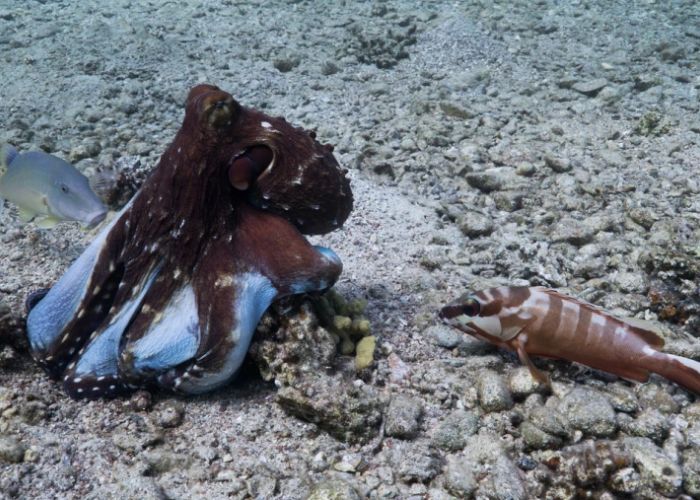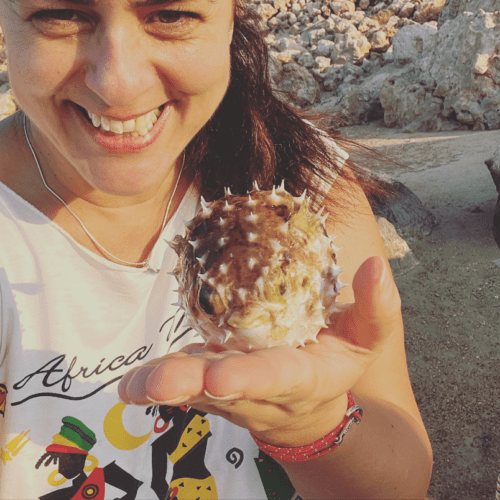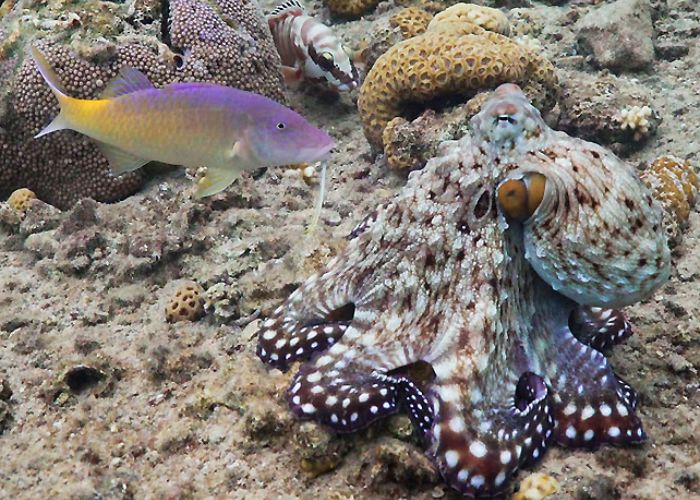As a passionate scuba swimmer with more than seven years of experience watching sea creatures, I’ve seen octopuses do some very interesting things. One of the most interesting things about them is that they can plan fish hunts for groups. That’s right, I was there and saw how punching octopuses plan big hunting parties in this story. Read below about “How Punching Octopuses Organize Fish Hunting Parties?”.
It began with a normal dive off the coast of Hawaii. My fellow divers and I went down to a small coral reef that was full of different kinds of tropical fish. Within minutes, we heard a heated commotion. Fish were jumping all over the place, scared. Then we saw three octopuses slowly come out of cracks in the reef. Three of them were looking around, and two of them had their arms curled up like they were ready to strike.
Table of Contents
How Punching Octopuses Organize Fish Hunting Parties?

I thought of a planned ambush when I saw the chaotic scene. It was clear right away that these octopuses were not hunting alone, but as a group. As the two “punchers” pushed the fish into a tight bait ball, they would spread their arms wide and hit them. When the fish were grouped together, the third octopus would jump out and grab one with its soft arms.
As a diver, it was exciting to see the octopuses’ clever ways of finding up close. I watched them for more than 20 minutes as they repeated the synchronized attack and caught more snapper, butterflyfish, and even a moray eel to eat. They would switch places every few minutes, punching and grabbing each other. It was a great example of working together.
I’ve been lucky enough to see hitting octopuses hunting in groups on dozens of dives over the years. I’m still amazed by their methods and how well they work together. So how do they plan these fancy parties where they go fishing? These are some of the methods I’ve written down:
Displays for hiring
Octopuses that want to join a hunting party will often put on fancy shows to attract new members. Their skin changes from one bright color and design to another. Scientists think that this helps to get other octopuses to join the hunt. That’s the same as an octopus waving a flag and saying, “Come hunt with me!” They likely have a better chance of catching fish if they get more shooters together.
Pack Assembly Spots
Octopuses like to hang out on reefs, and there are often marked “assembly areas” where they do this before going on a hunt. These are usually small holes or alcoves where people can hide while the group forms. I’ve often seen up to five octopuses squished together in a small cave, talking and getting ready for the hunt. They might choose who hunts by using chemical cues and body language.
Synchronized Movements
As a group, the octopuses move in sync when they are released from their packaging. A lot of the time, two or three will swim out together while others hide. It looks like they have a lot of planning and coordination going into their moves. Divers have caught video of octopuses circle with their arms linked, as if they were practicing for a hunt.
Strike Teams
As was already said, punching octopuses are experts at scaring and gathering fish. They stand around their food and then spread their arms wide and flash bright colors to confuse it. When the fish strike at the same time, they band together, and that’s when the grabbing octopuses move in. Based on their skills, each octopus has a specific job to do.
Signing off
Octopuses talk to each other during the hunt by changing their color and stance and other visual cues. One idea is that the punchers use a dark, bold design to let the snatchers know it’s time to pounce. This could be a “ready” warning for the snatcher to grab the prey by turning white. The back-and-forth signaling makes cooperation possible.
Ability to Adapt
Amazingly, octopuses can change their plans when things change. If the fish are spread out a lot, they might get more octopuses to circle them. I once saw a group try three different methods before they were able to catch a big eel. Their ability to change and solve problems is clear to see.
The things we’ve seen have helped us understand how octopuses use complicated planning, communication, and teamwork to complete successful group hunts. Many species hunt in groups, but octopuses are the only ones that use clear signals, clear tasks, and advanced problem-solving. They may even be able to communicate and get along with others as well as some animals.
Conclusion
We still don’t know everything about these interesting animals, but it’s clear that they have very well organized social systems. Octopuses are not lonely hermits, as I learned when I went diving with them. They form complex social networks and partnerships. By working together, they can hunt more efficiently, get to more supplies, and stay safer from predators. The way they work together to stay alive goes against the idea that octopuses are loners.
The hitting octopus hunting parties always amaze and thrill me, even though I’m a pro diver. Seeing how well they work together and coordinate their movements is an amazing experience. It serves as a warning that the oceans still hold a lot of mysteries waiting to be solved. Who knows what other hidden actions we might one day see below the waves if we protect these ecosystems?
I hope this first-hand story gives you some idea of how complicated octopuses’ social lives are. Even though they are usually shown as solitary animals, they can work very well together to trick their food on the reef. It shows that people of different species can work together successfully if they can talk to each other and coordinate their efforts.

Marta, the driving force behind WaterWorldCraze.com, holds a Master’s degree in Marine Biology and has extensive experience in water sports and activities. With over 7+ years of hands-on experience in marine research and conservation, she has participated in numerous underwater expeditions and projects. Her passion for the aquatic world shines through in her expertly curated content. Join Marta as she explores the wonders of marine life and shares her adventures. Connect with her on Instagram @marinebiologymarta for more insights and updates.

